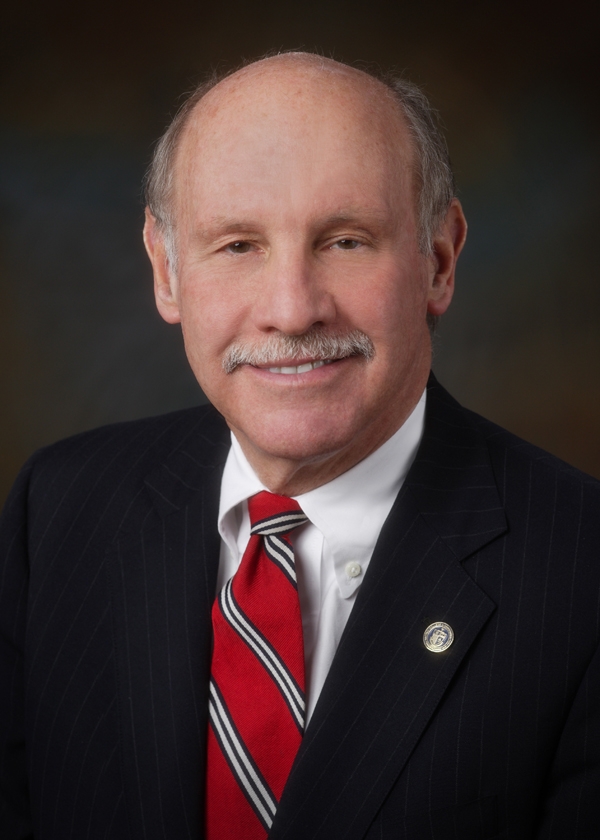The current squabble between President Trump and Federal Reserve Chair Jerome Powell has its roots deep in American economic history. The National Banking Act of 1863 brought some stability to financial markets, but financial uncertainty remained. In 1893 and again in 1907, market crashes occurred and depressions followed. Only private infusions of cash from J.P. Morgan alleviated fragile markets.
By 1913 it was apparent to most political and economic leaders that banking reform was necessary. As a result, the longstanding abhorrence to a central bank, which dates to Thomas Jefferson’s administration and was shared by much of rural America, was overcome. At the request of President Woodrow Wilson, the House Committee on Banking and Finance developed the Federal Reserve Act, signed into law in l913, and the Fed became a reality. As amended by the Full Employment Act of 1946, the Fed developed a variety of tools to accomplish the monetary policy goals of fostering price stability and optimizing employment.
Governed by a seven-member board appointed by the president and confirmed by the Senate, an independent Fed uses its monetary policy to smooth out the inevitable swings in the economy. To do so effectively the Fed must remain independent of political pressure. Such pressure is, however, inevitable when circumstances create an economic environment that politicians find less than optimal.
Lyndon Johnson was reputed to have tried to intimidate Fed Chair William McChesney Martin Jr. into lowering interest rates. In the 1970s, Richard Nixon placed pressure on Fed Chair Arthur Burns, planting what turned out to be a false news story that Burns was seeking a pay raise while arguing for price and wage controls. And there have been other attempts by presidents and even congresspersons trying to exert pressure on the Fed for their own political reasons.
The latest attack on the Fed involves a strategy not tried before. President Trump is anxious to reduce interest rates so that the cost of financing the federal debt, which is growing rapidly under his watch, is less burdensome. Powell, his board and the Fed’s Open Market Committee prefer a wait-and-see approach. Their concern is that the various tariffs the Trump administration has put in place may raise prices and by so doing seed inflation. The Fed is also concerned that the lack of steady fiscal policy on the part of the Administration and Congress may slow economic growth the U.S. has been enjoying. These two threats raise the possibility of stagflation.
President Trump has not hidden his contempt for Chairman Powell and has talked openly about firing him before his term expires in late May next year. Such a threat has caused anxiety within the financial community and politicians on both sides of the aisle. This fact, combined with various international concerns, such as the decline in the value of the dollar, the World Bank downgrading its economic growth forecast for the U.S. by half (2.8% to 1.4%), and central bankers from the EU, Japan and England expressing agreement with Powell’s approach, helped put an end to talk of firing the chairman. Instead, the president is now considering appointing Powell’s successor much earlier than May 2026 when his term ends. This would create a “shadow Fed” that would second guess Fed official policies.
This strategy, if enacted, could wreak havoc on the American and the international economy. The Fed can make mistakes, but their decisions are based on careful review of thoughtfully collected data, estimates and calculations of individuals who have spent decades refining economic forecasting techniques. To allow an individual, or group of rogue political insiders to second-guess professionals at the Fed would be a monumental mistake.
When the Federal Reserve Act was passed in 1913, few could comprehend the sophisticated monetary tools the present Fed now possesses. However, what they could see was how politicians might maneuver monetary policy to benefit their own political goals at the expense of those of the country. Just as our founding fathers developed a government that relied on checks and balances so it would not cater to political expediencies, so should our monetary policy be led by a central bank that is not encumbered by political coercion. To have it otherwise invites disaster.
Michael A. MacDowell is President Emeritus of Misericordia University and a Trustee of the Calvin K. Kazanjian Economics Foundation.
